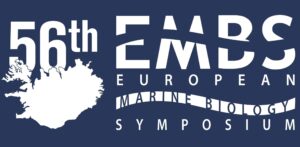Conference themes
Main themes of conference:
- Main theme: Celebrating the 200th anniversary of AR Wallace’s birth: biodiversity distribution patterns along environmental gradients in marine ecosystems.
- One-day theme: Advancing monitoring and management of marine biodiversity.
Themes
- Marine biodiversity conservation and restoration: the role of Education and Policy
The effectiveness of marine biodiversity conservation and restoration relies on education and policy making. This session will focus on examples of educational and policy strategies. - Advancing monitoring of marine biodiversit
Whether you are developing or using new technologies such as AUV, environmental DNA, or bioacoustics to improve the monitoring of marine biodiversity, join this session and share your work and expertise with us.
- Deep sea and research in extreme environments: knowledge and conservation
Extreme marine environments, such as hydrothermal vents and the deep sea, present inhospitable conditions for life to thrive in such hostile conditions. However, several groups of organisms have adapted to exploiting and inhabiting these. This session is open to the latest research on biodiversity and adaptations to living in extreme environments and recent advances to their conservation.
- Patterns of change in biodiversity and ecosystem functioning across environmental gradients
Across different ecosystems, patterns of biodiversity and functioning can change. This session will present the latest research on patterns observed across different environmental gradients.
- The role of Mesopelagic organisms and ecosystem function
While mesopelagic organisms represent the largest biomass on Earth, very little is known about their role in the ocean. This session is open to various aspects of their biology, their diversity, and their role in marine scosystems.
- Multiple stressors in marine ecosystems: challenges and future perspectives
Understanding the interlinked effects of multiple stressors (e.g. climate changes, eutrophication, ocean acidification) on organisms and ecosystems is increasingly important. This session will focus on the challenges of understanding these impacts and its future perspective.
- Genetics and Genomics: implementation into management and conservation
The topic in this session will focus on genetics/genomic studies demonstrating the importance of species diversity (e.g. ecotypes, populations/stocks) for management and conservation.
- Promoting access to marine research in Arctic/sub-Arctic and the importance of the Greenland-Scotland ridge
The Arctic/sub-Arctic region is experiencing rapid changes as a result of anthropogenic actions. Within this area, the Greenland-Scotland ridge is an important region where the Arctic and Atlantic water masses shape the distribution of marine organisms and affect potential colonisation events from southern regions. This special session is dedicated to studies discussing the status of marine research in the Arctic/sub-Arctic, including the Greenland-Scotland ridge, and the potential strategic needs for conservation of biodiversity in this region.
- General session
All other aspects of marine biology and ecology.
komum contact
Oranizing committee
- Haseeb Randhawa
Stay in the Loop
- Programme
- Registration
- Contact Us





